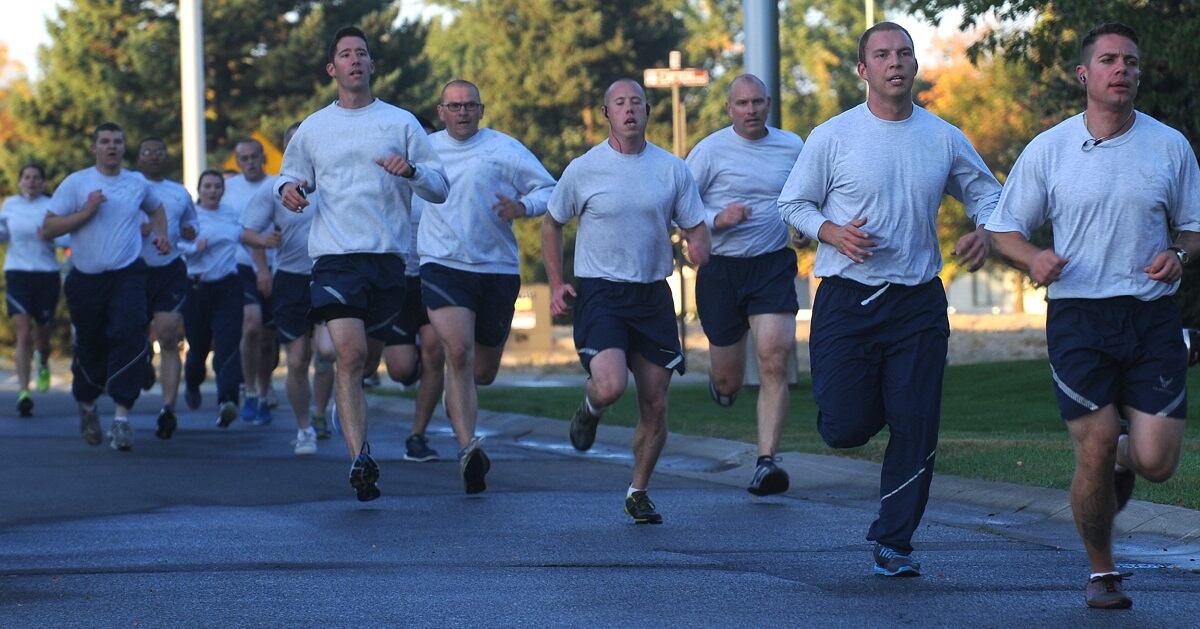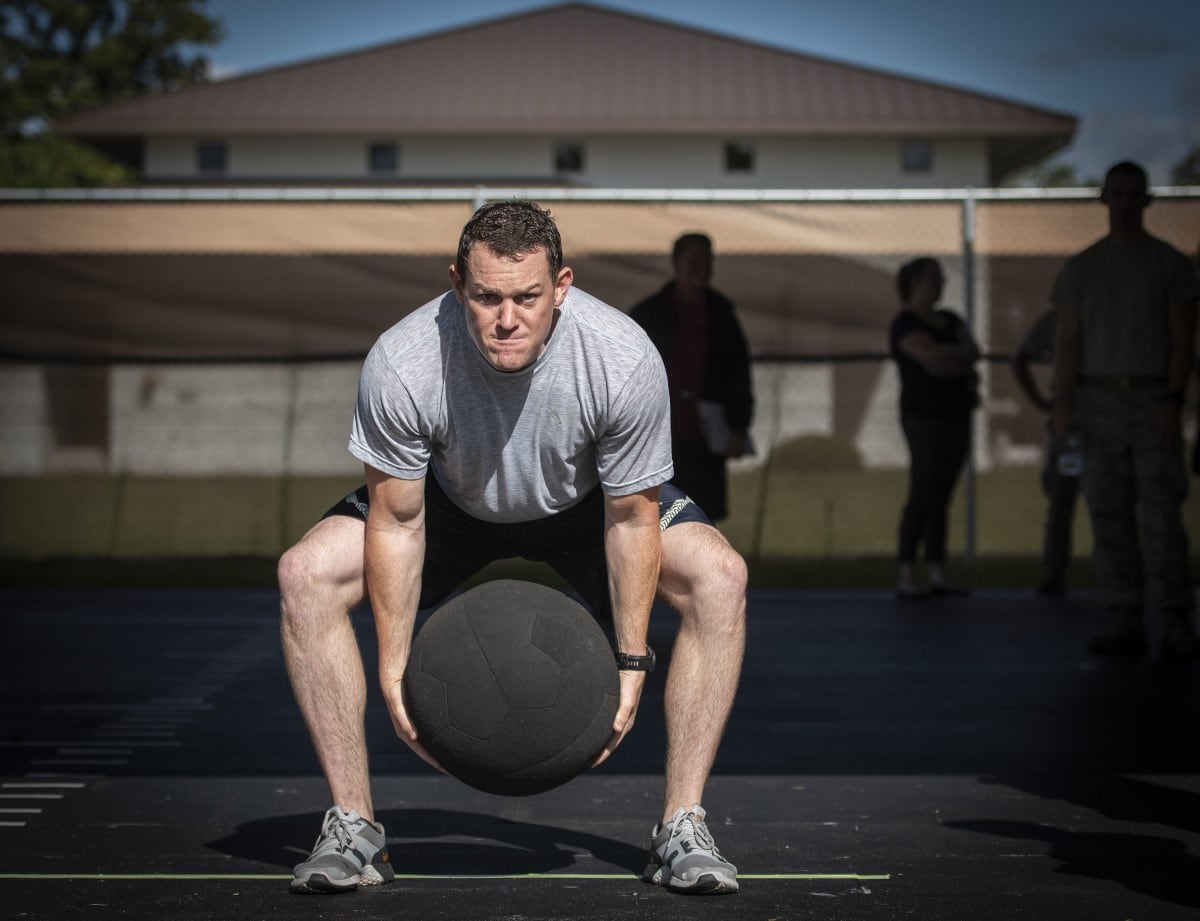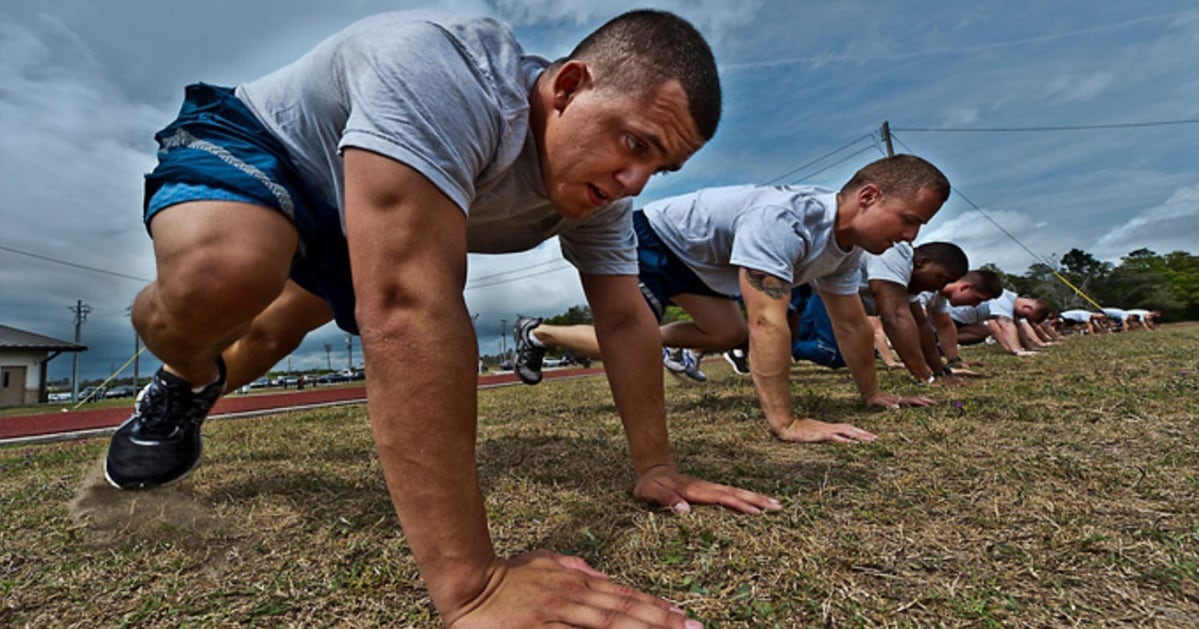One of the Air Force’s core values is “service before self.” But that mentality could be jeopardizing airmen’s fitness readiness, according to one expert.
“They’re human weapons systems,” Janet Grund, the health promotion manager for the military’s National Capital Region, told Air Force Times. “However, we have not given them proper training or the specifications of proper maintenance of that human weapon system.”
A 2018 Rand Corps study found more than 60 percent of airmen are overweight, and a 2019 Health of the DoD Force study determined 18 percent were obese. Additionally, airmen could suffer a variety of outcomes if they fail a physical fitness exam, and in some cases, it could end their career.
To solve this problem, Grund identified a possible solution for helping airmen get in shape: a digital fitness coaching app. That’s why she submitted a proposal to AFWERX, an Air Force program designed to foster innovation in the service, and pitched a plan that could generate customized workout and nutrition plans for individual airmen.
“I submitted an idea for a fitness app, and my reason for doing that was because I was doing this manually,” Grund said. “I provide customized fitness and health improvement plans for my customers.”
But instead of plugging in an airmen’s height, weight and body mass index into an Excel spreadsheet, Grund wanted to apply her system into an app to assist even more airmen.
“I can only handle so many,” Grund said. “The need is greater, of course, than my capacity. So the app duplicates me.”
The idea took off. AFWERX accepted her proposal and the Air Force’s Small Business Innovation Research program discovered PEAR Sports, a health and fitness software platform that creates customized workouts for clients, to execute the idea.
PEAR Sports, which launched approximately seven years ago, has the capacity to deliver workouts to users in several different ways. PEAR can create a platform that provides a personalized workout plan using artificial intelligence and information from an individual’s profile, or it could connect users one on one with a fitness trainer in real time.
Additionally, airmen could undergo a DNA test for metabolic analysis, and to detect any allergies for a customized nutrition plan.
“The easiest way to think of PEAR is we are intelligent coaching delivered digitally to an individual’s mobile phone,” Greg Altin, PEAR’s chief technology officer, told Air Force Times. “So what we do is we build fitness programs that can be consumed by different populations.”

In order to measure an individual’s progress and modify training plans, PEAR’s app connects to a user’s smartwatch or heart rate monitor.
“The technology is aware of the performance of the individual during that exercise and we give very dynamic audio or video feedback based on data input either from a phone or a wearable smartwatch or a heart rate monitor,” Altin said.
Ultimately, PEAR Sports was awarded a Phase I SBIR contract in November 2019 to sort out the specifications of the app to accommodate a fitness component, a nutrition component and a mindfulness component.
Now, PEAR is seeking a Phase II contract that would provide PEAR’s solution to 100 participants from the Air Force’s 11th Wing at Joint Base Andrews in Maryland as part of a pilot program to undergo virtual coaching, monthly fitness test simulations and more.
According to PEAR’s Chief Strategy Officer Wayne Dartnell, the challenge for PEAR is “how do we create these personalized training programs and take the airmen from where they are now to where they need to be.”
Dartnell said that PEAR aims to take into account the number of days an airmen already trains, what kind of equipment they have access to and short-term goals to help outline the appropriate exercise program for an airmen.
“So we take all that information...and that creates very personalized programs for individuals that ensure[s] that we’re not prescribing something that’s too easy for someone, or too hard for someone,” Dartnell told Air Force Times.
For example, Grund said that the app would initially prescribe a walking program for a sedentary and obese airman to get him or her moving.
RELATED

The Air Force’s fitness test involves several components: a 1.5-mile run, pushups, situps and a tape test that measures the circumference of an airman’s torso. Depending on how an airmen scores, he or she will take the test again in 6 or 12 months.
Nick Norris, who served as the officer in charge of Navy SEAL Qualification Training with Naval Special Warfare Basic Training Command before exiting the military in 2013, characterized the Air Force’s current physical readiness test as a bit “outdated.”
“I think there’s a lot of people also that just maybe they didn’t have a background in pure athletics growing up, and they don’t know how to properly prepare for a test like that,” Norris, an ambassador for PEAR, told Air Force Times.
Norris said many service members end up “cramming” for their test and argued PEAR would allow airmen to “progress at their own rate.” PEAR’s platform would be more effective than group PT training that unit fitness program managers oversee because the test evaluates airmen on an individual basis rather than in a group, he said.
Since the app tracks progress, Grund also predicted it could prevent airmen who’ve failed fitness tests, but are improving, from being forced out of the service. The reports the app compiles could prove to a retention board they’ve advanced and now have the resources to stay on track and eventually pass, she said.

“That’s what we are wanting not to have happen, is to lose our greatest resource: our experienced and credentialed and competent airmen,” Grund said. “Those are not the ones that we want to see leaving.”
Next on the horizon for PEAR is to obtain a Phase II SBIR contract requiring the Air Force to match funds on private investments and up to $1.5 million on government investments. Dartnell said that PEAR is aiming to receive the Phase II contract early this year and kick off the pilot program.
It’s unclear whether the pilot program will include 100 volunteers from the 11th Wing, or if it will only target airmen who have failed a fitness test, according to Grund. But after the pilot program, Grund predicted the entire service — and possibly other branches of the military — will adopt PEAR’s fitness solution.
“I believe Air Force is going to take this up Air Force-wide,” Grund said. “Why? There’s no way it’s not going to work.”





